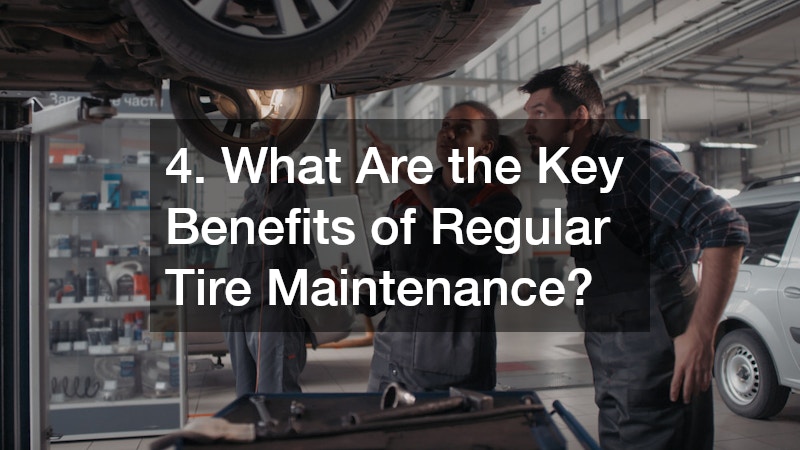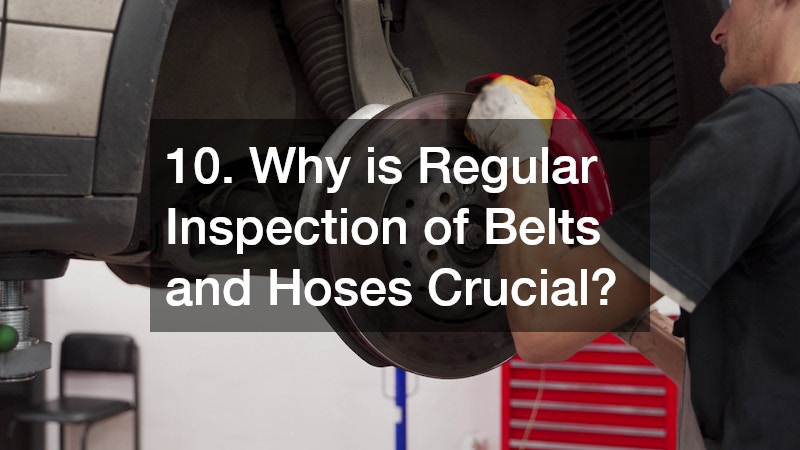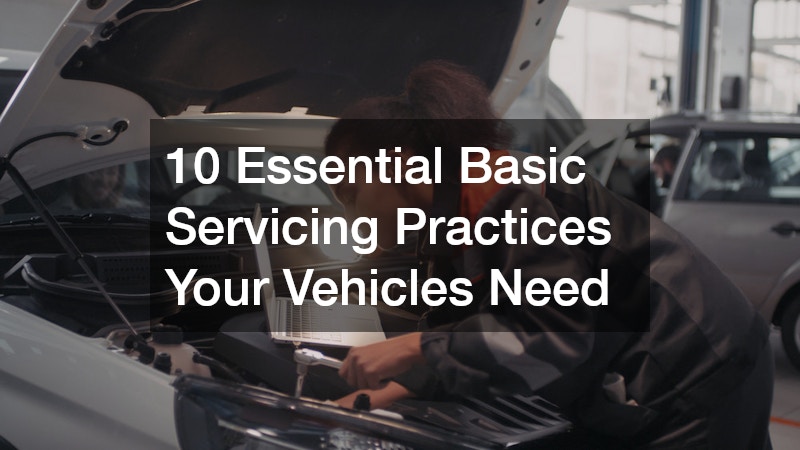Owning a vehicle comes with the responsibility of regular and effective maintenance, often termed as basic servicing. Basic servicing is the backbone of vehicle longevity, ensuring that cars, trucks, and even golf carts run smoothly. Regular maintenance can greatly enhance the safety of your vehicle, providing peace of mind every time you hit the road. Without periodic check-ups and maintenance, even reliable tractors and the most robust vehicles may fall prey to wear and tear more quickly than expected. By understanding and executing these essential servicing practices, vehicle owners can increase their vehicle’s lifespan and save significantly on long-term repair costs.
1. What is Basic Servicing for a Vehicle?

Basic servicing is a set of routine checks and maintenance tasks designed to keep a vehicle in top shape. These tasks range from oil and filter changes to more detailed inspections like brake and transmission checks. Emphasizing car dent repairs, basic servicing also includes looking after your vehicle’s exterior, which can prevent long-term structural issues and maintain its resale value.
Car dent repairs play a crucial role in the aesthetics and aerodynamics of your vehicle. Left untreated, small dents and scratches can lead to rust and other problems that may escalate, affecting the vehicle’s performance. Regular basic servicing ensures these minor damages are addressed, thus preserving the integrity of your vehicle s exterior.
For those who own foreign vehicles, foreign car repairs become an essential consideration during basic servicing. It might require specialized skills and tools to ensure these vehicles continue to function optimally. Therefore, choosing qualified professionals who understand the intricate needs of foreign car repairs becomes vital to the longevity of these cars.
2. How Often Should Your Vehicle Undergo Basic Servicing?
The frequency of basic servicing varies depending on the vehicle’s make, model, and driving conditions. Typically, most experts recommend a service interval of every 5,000 to 10,000 miles or every six months, whichever comes first. Adhering to these intervals helps reduce the likelihood of unexpected breakdowns and costly foreign car repairs.
The driving environment significantly impacts the frequency of basic servicing needs. Vehicles driven in extreme weather conditions, or those used for towing services, might require more frequent checks. Ensuring that your servicing schedule is tailored to your specific needs helps maintain the vehicle’s efficiency and performance.
Regular servicing also acts as a preventative measure, mitigating the risks involved in potential accidents. Car crash attorneys often point out that routine maintenance could prevent many accidents caused by vehicle malfunction. Therefore, by staying on top of your vehicle’s servicing schedule, you enhance not only the safety of your vehicle but also the safety of everyone who shares the road.
3. Why is Oil Change an Essential Part of Basic Servicing?
An oil change is perhaps one of the simplest yet most critical components of basic servicing. Fresh oil reduces friction between the moving parts of an engine, ensuring they work together smoothly and efficiently. Over time, oil can degrade and become contaminated, which is why it needs regular replacement to prevent engine wear and potential damage.
With a regular oil change, your vehicle’s engine runs more efficiently, reducing the chances of costly repairs, such as needing a car scrapping service. This basic servicing task is not only about filling new oil but also involves replacing the oil filter to ensure contaminants are effectively removed. An unchecked engine might lead to severe damage, making car scrapping service the unfortunate final option.
Whether you drive a family sedan or manage a fleet of trucks, the principle is the same—regular oil changes extend the life of your vehicle. Truck accessory companies often advise more frequent oil checks and changes for trucks than cars due to their heavy workload. Consistent attention to this basic servicing task helps ensure your vehicle remains in peak condition over time.
4. What Are the Key Benefits of Regular Tire Maintenance?

Tire maintenance is a pivotal part of basic servicing that directly affects the vehicle’s performance and safety. Proper tire inflation improves fuel efficiency and handling, reducing the risk of accidents. Neglecting this aspect can lead to uneven tire wear, posing the threat of sudden blowouts or other dangerous situations on the road.
Regular tire inspections go a long way in maintaining tread depth and ensuring even wear. Alignments and rotations are integral elements of basic servicing that prolong tire lifespan and improve vehicle stability. Car owners should be vigilant about tire condition, as it plays an essential role in comfortable and safe driving, potentially staving off the expenses associated with hiring a car crash attorney.
For those navigating varied terrains with vehicles like reliable tractors or trucks, tire care becomes even more crucial. A towing service might become inevitable if tires are worn out, as such wear can lead to unexpected stoppages in the middle of nowhere. In regular basic servicing, inspecting and maintaining tire condition can save both trouble and cash in the long run.
5. How Does Brake Inspection Impact Vehicle Safety?
The braking system is one of the most critical aspects of vehicle safety and requires regular inspection during basic servicing. Worn-out brake pads not only increase the stopping distance but also put undue stress on the braking system, which may lead to expensive repairs or replacements. Regular inspections and maintenance of the brakes can prevent such scenarios, ensuring your vehicle’s safety on the road.
Regular servicing should always involve a thorough check of brake pads, rotors, and fluid levels. A telltale sign, such as a grinding noise when braking, indicates immediate attention is required. Staying on top of brake maintenance not only ensures safety but also prolongs the life of these critical components, as endorsed by any prudent truck accessory company.
Vehicles used under high stress, like those utilized by towing services, require more frequent brake checks. Standard safety protocols suggest examining brakes each time the vehicle undergoes basic servicing. Ensuring all components of the brake system are in optimal condition enhances the reliability of your vehicle, making for safer travel wherever you go.
6. Why is Battery Maintenance Vital for Vehicle Health?
Battery maintenance is another crucial element of basic servicing that should never be overlooked. A failing battery is not just an inconvenience; it can leave you stranded without warning. Regular basic servicing includes checking the battery’s charge level, inspecting cables for corrosion, and ensuring that it is securely mounted.
The climate you operate your vehicle in can affect battery longevity, especially in extreme temperatures. Basic servicing tailored to your needs might include more frequent battery checks in such environments. Some services, such as those offered by towing companies, may also provide battery jump-starts or replacements, highlighting the importance of a well-maintained battery.
Whether you’re driving around town in your car or managing a fleet of golf carts, battery health should not be ignored. Using quality components, like those from a reliable truck accessory company, can ensure longer battery life. Regular checks can prevent potential issues, saving you from the inconvenience and cost of unexpected stoppages.
7. How Does Fluid Check and Replacement Affect Vehicle Performance?

Fluid checks and replacements are integral to basic servicing, impacting various aspects of the vehicle’s performance. Engine oil, brake fluid, coolant, and transmission fluid all require attention to ensure they are at optimal levels and free from contaminants. This not only enhances performance but also significantly reduces the risk of mechanical failures.
Regular fluid checks are crucial for avoiding overheating and ensuring smooth gear transitions. Neglecting fluid levels can lead to major mechanical issues, turning into costly repairs. For those using robust machines, like reliable tractors or cars in heavy traffic, consistent fluid maintenance is especially important.
In basic servicing, replacing old and contaminated fluids with fresh ones can make a noticeable difference in vehicle efficiency. Regularly scheduled maintenance that includes fluid checks can prevent breakdowns and prolong the life of vital engine parts. These preventative measures are critical for maintaining overall vehicle health and performance, ensuring you get the most out of your vehicle.
8. What is the Importance of Air and Cabin Filters in Basic Servicing?
Air and cabin filters play vital roles in basic servicing, contributing to both engine performance and passenger comfort. Air filters purify the air that enters the engine compartment, affecting the combustion process and thereby engine efficiency. A clean air filter can improve gas mileage and reduce emissions, highlighting its significance in routine maintenance.
Cabin filters are equally important, as they improve the air quality within your vehicle’s interior. Clean cabin filters ensure a pleasurable driving experience, even during allergy seasons when pollen counts are high. Whether driving a personal car or a fleet of golf carts, regular replacement of these filters should be a priority in basic servicing routines.
Golf carts, like all vehicles, benefit from a well-maintained airflow system. Swift filter replacements conducted by a golf cart repair service can prevent longer-term issues and ensure optimal operation. Ensuring that filters are part of your basic servicing checklist helps maintain the health of both vehicle and driver alike.
9. How Does Routine Transmission Service Enhance Vehicle Longevity?
Transmission is a complex system rendering movement to the wheels of your vehicle, an area truly worthy of attention in basic servicing. Transmission service can involve fluid replacement, filter changes, and inspection of components like belts and gears. This meticulous care can significantly increase the transmission’s lifespan, which is often costly to replace. A well-maintained transmission ensures smooth gear shifts, reduces friction, and prevents overheating—issues that can otherwise lead to complete system failure.
Regular attention to your vehicle’s transmission, especially for heavy-load vehicles like trucks, can prevent future malfunctions. For golf carts, however, a specialized golf cart repair service often assures thorough transmission checks, safeguarding seamless function. By incorporating transmission servicing into your regular maintenance schedule, you can prevent unforeseen damages and extend vehicle longevity. It’s also advisable to follow the manufacturer’s recommended service intervals, as neglecting these can accelerate wear and tear.
Fluid and filter changes remain fundamental to routine transmission servicing, ensuring the system operates smoothly. Regular attention to your transmission’s health during basic servicing can prevent thinning or contamination of transmission fluid. Such proactive measures place less strain on the system, enhancing performance and ensuring your vehicle’s reliability for years to come. Ultimately, consistent transmission care reflects a commitment to responsible vehicle ownership, improving efficiency and preventing costly breakdowns.
10. Why is Regular Inspection of Belts and Hoses Crucial?

Belts and hoses are often overlooked, yet they are critical to the proper functioning of a vehicle’s engine and cooling system. During basic servicing, inspecting these components for signs of wear and tear can prevent breakdowns and costly repairs. A damaged belt or hose may lead to overheating and other major issues that could immobilize your vehicle.
Regular inspection should look for cracks, bulges, and leaks which indicate that the belts or hoses may need replacement. Even in vehicles that might not face the same workload, like golf carts, belts and hoses should be a regular checkpoint. Ensuring they are in prime condition during routine servicing reduces the risk of breakdowns and maximizes performance.
Leading a proactive approach towards belt and hose care, golf cart repair services emphasize their regular checks. Using quality replacements, such as robust golf cart batteries and components, ensures dependable vehicle operation. Regular inspections and maintenance of belts and hoses as part of basic servicing are pivotal for seamless and lasting vehicle function.
Basic servicing constitutes the backbone of extending vehicle life and ensuring safety on the road. Through regular checks of vital components, vehicles, whether family cars or hard-working tractors, continue to perform optimally. From oil changes to brake inspections, comprehensive servicing contributes not only to longevity but also to peace of mind for vehicle owners.
By adhering to these guidelines and ensuring your vehicle receives the attention it deserves, owners can mitigate the chance of expensive repairs and maximize efficiency. Engaging in thorough basic servicing protects your investment and guarantees your automobile functions reliably and safely throughout its lifetime. These efforts ensure peace of mind, allowing you to drive confidently wherever your travels may take you.


